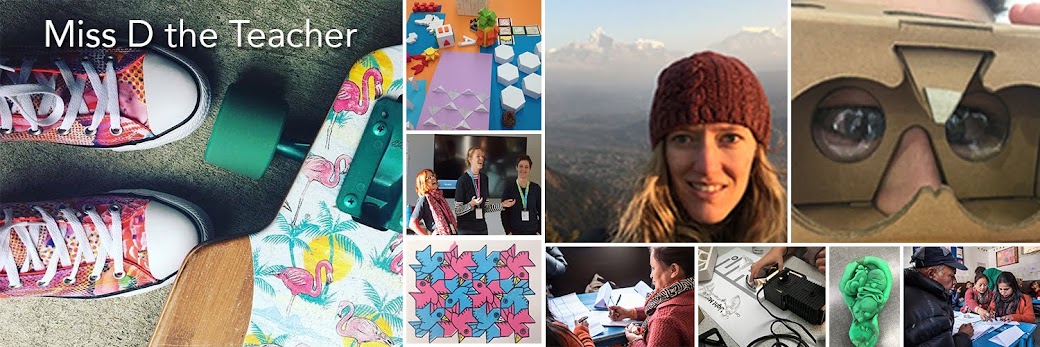Today we had the third day (out of four) working with a group of Nepali teachers here in Kathmandu as part of an LRTT Fellowship. The past few days have been incredible, and I am so grateful for this opportunity.
Working across a language barrier can also add in additional challenges. This week has made me painfully aware just how tuned we become to certain sounds. I have been trying very hard to pronounce the names of each of the Nepali teachers, however, I just can't seem to make the right sounds! In our tiny classroom, there have been at least three different English accents in the room. Sometimes we talk too fast, sometimes we use too big words. We have skipped and sometimes stumbled our way over educational jargon.
 Yet, despite these differences, we have somehow managed to come together as a group. We have laughed together and learnt together. Because luckily, some things are universal...
Yet, despite these differences, we have somehow managed to come together as a group. We have laughed together and learnt together. Because luckily, some things are universal...
Yesterday, Anna, my LRTT co-teacher/fellow did a model music lesson. It was a gold standard lesson. It was carefully scaffolded, fun, and she did great progress checks along the way to establish learning. By the end of the lesson, even I could vaguely keep a rhythm and clap the different beats. Anna also taught us an Israeli wedding song and dance. That means two Australians, a New Zealander, and eight Nepali dancing an Israeli wedding dance together in Kathmandu. We laughed, and danced, and clapped. It was wonderful. It was also a critical reminder that regardless of how different our backgrounds and context, some things are universal. Music is one such thing. It can transcend time and place to bring us together.
Music of course is not the only universal way to bring people together. I had great fun learning a game from our Nepali teachers and students today called coco (not sure about spelling). Just like music, games also have a way of transcending cultural and social boundaries. While I was reminded of this at the NZCER Games for Learning conference earlier this year, this week has really made this sink in. Games have the potential to bring people together. It helps us find a common ground, build relationships and share our cultures. The explicitness of rules help us to navigate and explore new and different social boundaries.
With the last day of our conference tomorrow, I will certainly make sure there is time for at least one more game and one more song.

No comments:
Post a Comment